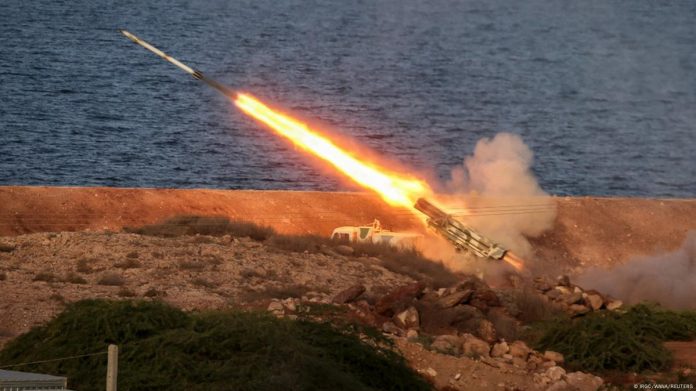On Tuesday night, Iran launched nearly 200 ballistic missiles towards Israel. The Israeli military reported that most of these missiles were intercepted, with only a few causing damage in central and southern Israel. A Palestinian man in the occupied West Bank was the only reported fatality.
Scale of the Attack
According to the Israel Defense Forces (IDF), over 180 missiles were fired, aligning with Iranian state media reports. The United States noted that this attack was “nearly twice the scope” of an earlier missile barrage in April. Sirens sounded throughout Israel, alerting its entire population of about 10 million to seek shelter.
Verified social media videos showed missiles over cities like Tel Aviv and Jerusalem shortly after the attack began. While the IDF confirmed that some of its air bases were hit, it stated that no critical infrastructure or aircraft were damaged. Iranian state media claimed the attack targeted airbases and tanks in Israel.
Damage and Casualties
The IDF reported that while several air force bases suffered damage, it was limited to administrative buildings. Civilian infrastructure damage was reportedly minor, with some injuries reported due to shrapnel and panic while seeking shelter. Notably, a Palestinian man was killed by a missile fragment in Jericho.
Missile Interceptions
The IDF has not disclosed specific interception details but stated that Israeli and US-led forces effectively defended against the missile barrage. Israel employs a multi-layered air defense system, including the Iron Dome for short-range threats and David’s Sling for medium to long-range missiles. The Pentagon reported that US Navy destroyers also participated in interception efforts.
Motivation Behind the Attack
Iran’s Islamic Revolutionary Guard Corps (IRGC) stated that the missile attack was a retaliation for perceived violations of its sovereignty, including the alleged assassination of Hamas leader Ismail Haniyeh and recent Israeli airstrikes in Lebanon. The IRGC claimed that the missile launch was authorized by Iran’s Supreme Leader, Ayatollah Ali Khamenei.
Israeli Response
Israeli Prime Minister Benjamin Netanyahu described the attack as a failure for Iran, emphasizing Israel’s determination to defend itself. Israel’s Defense Minister vowed that Iran would face severe consequences for the attack.
International Reactions
US President Joe Biden reaffirmed support for Israel, condemning Iran’s actions as ineffective. UK Prime Minister Keir Starmer and leaders from France and Japan also expressed support for Israel’s right to self-defense while urging restraint.
Future Implications
The IDF’s Chief of Staff indicated that Israel would respond strategically, potentially targeting Iranian oil facilities or nuclear sites. While President Biden confirmed US support for Israel, he clarified that any attack on Iran’s nuclear facilities would not receive American backing.
In conclusion, the situation remains tense, with further developments expected as both sides navigate this escalating conflict.















